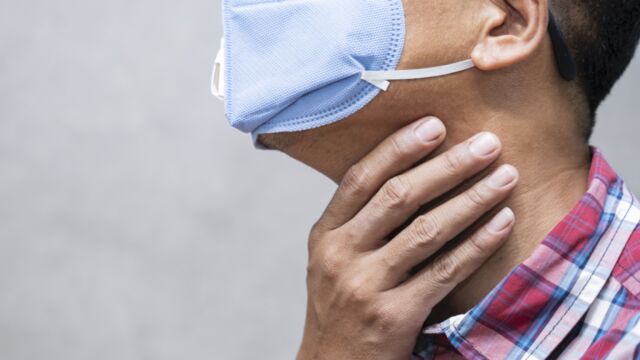This week it was discovered thatthe UK strain of coronavirus has once again mutated in multiple areas, with the new variations showing concerning similarities to the South African and Brazillian strains.
Discover our latest podcast
Watch out for new symptoms
Over the last week, Public Health England has detected over 40 cases of the UK coronavirus strain with the E484K mutation. Previously seen in both the South African and Brazillian strains, this mutation could allow the virus a better chance at bypassing the body’s immune system and weakening the efficacy of vaccines. However, further tests to determine the effects of the E484K mutation are still ongoing.
Now, authorities are warning those in areas such as Liverpool and Bristol to watch out for a new, wider range of symptoms that could suggest an infection of the new strain.
The mutation that was first linked to a group of NHS workers who had attended a funeral together can still present itself through the common symptoms of a cough, high fever and loss of smell and taste. But residents have also now been warned to look out for:
- Diarrhoea
- A persistent headache
- Fever and chills
- Shortness of breath or difficulty breathing
- Fatigue
- Muscle or body aches
- Sore throat
- Congestion or runny nose
- Nausea or vomiting
If you have any of these symptoms, make sure you get tested
Matthew Ashton, Director of Public Health for Liverpool stated that ’We are concerned that people may not think they have Covid because they are not displaying the classic symptoms and, as a result, could be unwittingly spreading the infection to others.’ He continued:
The virus is changing all the time, so it is essential that we redouble our efforts so we stay one step ahead of it, and we know some people have been testing positive with other symptoms.
Ashton continued to reiterate that anyone who presents any of these symptoms or suspect they have the virus, should make sure they go and get tested. Additionally, residents should ensure that they adhere to the ‘Hands, Face, Space’ rules when ut in public to ensure that the spread of coronavirus is slowed:
Testing has a key role to play in helping us keep the virus under control until we have a large proportion of the population immunised, in addition to the all existing measures such as social distancing, washing our hands regularly and wearing face coverings in confined spaces.















